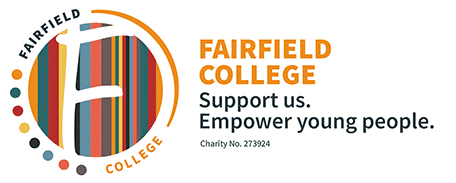BOARD OF TRUSTEES

A registered charity, Fairfield Trust (also known as Fairfield College) must be governed in accordance with the governing document, which sets out the objects of the charity, and the powers under which it can be administered.
The main role of the Board of Trustees is to govern the Charity while the Senior Leadership Team (SLT) carry out the day-to-day management and work. Trustees set the overall strategy and objectives of the charity and the SLT develops operational plans and procedures to achieve the objectives and set targets. Trustees then approve the plans and targets and staff implement them. Finally, the Trustees monitor the progress the Charity is making towards achieving its objectives and targets, most importantly the outcomes of young people at Fairfield. The relationship between Trustees and staff is best thought of as a partnership. For example, when setting policies, Trustees will be dependent on SLT for information and the staff may even draw up the suggested policy for Trustees’ approval.
The following provides an outline of the Board of Trustees areas of responsibility.
The Role of the Board of Trustees:
The Board of Trustees is the governing body of the Fairfield Trust – also known as Fairfield College – and it holds ultimate power and responsibility. The Charity’s Board is made up of volunteers who have to set aside their personal interests, giving their time to carry out their duties for no payment. The Charity benefits from the objectivity such a Board brings, as well as from the skills and experience of its members.
The Board’s duty is to act in the interests of the beneficiaries (students/residents) and in accordance with the Charity’s governing documents. Its role is to ensure that Fairfield has a clear direction and purpose and a sense of urgency to get on with the work it was established to do. The Board’s duty is to set clear objectives, establish priorities, safeguard the assets (money, property, equipment, human resources) and use them effectively and exclusively to benefit students. The Board has delegated day-to-day management and operations to the SLT ie the CEO, Principal and Head of Finance. The Board remains ultimately responsible for ensuring that the organisation is well managed and operates within agreed policies, the law and its budget.
The Board of Trustees’ main role is that of governance; its responsibilities are to:
- Ensure that all the Charity’s activities are within the law
- Ensure that all the Charity’s activities come within its charitable objects
- Determine the Charity’s mission, purpose and strategic direction
- Guard the Charity’s ethos and values
- Develop and agree the Charity’s policies
- Agree the budget and monitor financial performance
- Promote and monitor high educational and support standards throughout the Trust
- Ensure the Charity has adequate resources
- Ensure the Charity’s land, property, assets and other resources are protected and managed effectively
- Monitor the Charity’s programme and services
- Review annually the performance of the Board of Trustees
- Appoint the CEO and Principal
- Review annual salary levels of all staff
- Support the SLT and review the performance of the Trust
- Act as an appeal body on personnel matters
- Act within its powers as set out in the governing document.
In order to carry out these responsibilities, the Board must:
- Meet as often as is necessary for the proper administration of the Charity
- Seek professional and other expert advice where necessary.
The Role of the Senior Leadership Team:
The SLT has responsibility for the internal organisation and day to day operational management and control of the Charity and is accountable directly to the Board of Trustees. Trustees are not expected to take detailed decisions about the day to day management at Fairfield; that is for the SLT.
Examples of the Senior Leadership Team’s responsibilities are:
- Business planning and management
- Staff recruitment, appointment, management and discipline (below SLT level)
- Financial management
- The uses to which resources may be allocated (within the budget set by Trustees)
- Curriculum management
- Support management needs of students
- Transport
- Management of building projects
- Buildings maintenance
- Security
- Implementation of policies set by the Trustees
- Handling emergencies
This list is not exhaustive.
Alan Best – Chair of Trustees/Finance, Commercial and H&S Committee
Alun Maddocks – Education & Safeguarding Committee
Cate Mullen – Workforce, Safer Recruitment & Pathways Committee
Emily Denham – Workforce, Safer Recruitment & Pathways Committee
James Fortune – Finance, Commercial and H&S Committee
Karen O’Connell – Vice Chair of Trustees/Education & Safeguarding Committee/Trustee Safeguarding Lead
Martin Cooper – Finance, Commercial and H&S Committee
If you have any questions re the Trust or the Trustees, please contact the Business Support Manager on 01225 759075.
